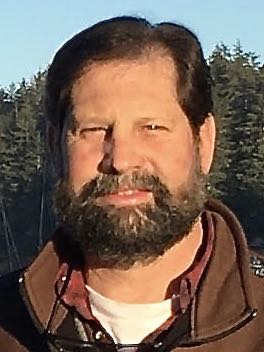Finding a way to “Yes”

Lon Garrison, AASB Executive Director
Leadership in democratic governance is not easy. In fact, it is often messy and very hard. Sometimes it is incredibly frustrating. Not all decisions turn out the way you may want, but for the most part, it works. However, it only works when leaders come together with the expectation that the goal is to accomplish something for the benefit of the whole, a servant leadership approach. As a leader participating in this process, you may need to put perfection aside and settle for “pretty good” because that is often far better than nothing. Unfortunately, in today’s political reality, many have taken an “all or nothing” approach to democracy which is not democratic at all.
At our recent AASB Legislative Fly-in, we had the privilege and opportunity to have Senator Tom Begich, a member of the Senate Education Committee, speak to school board members about the democratic process, using the Alaska Reads Act as an example, SB 111. And while the Senator spoke to us about the bill itself and its evolution, he was giving us the opportunity to see how a coming to “pretty good” could create a path forward that has a far greater impact when considering other legislation that could benefit public education, say for instance an increase in the Base Student Allocation.
We have often spoken about the Art of Compromise. Even in today’s political environment, which is highly polarized, trying to get something done, means that we often have to compromise. We have to find a way to a solution, a way to get to “yes”. As local school board members, when you go to your school board meetings and have to make hard decisions, it’s not always a unanimous decision. I recall as a school board member, we often had a vigorous debate on an issue, and the vote was split. At times I was on the winning end, and sometimes I was not. However, I always felt like we usually made the best decision because we had a debate and civil discourse. Senator Begich’s example of working with the governor, a political opponent for him, on an issue that could have a profound impact on the lives of children couldn’t be a more appropriate example of that. The persistence of moving an issue forward in the best interest of the students of the state of Alaska is exemplary.
So now it’s up to you. It is up to us as leaders of AASB and you as school board members to utilize this opportunity; to give the legislators a way to say “yes”. We heard some very encouraging things about SB 111 and had some misinformation was dispelled. There have been questions and concerns about how the reading bill would affect language immersion schools. The Senator unequivocally stated that the legislation supports literacy in any language, not just English.
In the grander scheme of legislative education politics, the passage of SB 111 could be the keystone to accomplishing so much more. This is not unusual. We know that often the way to get things done is using leverage to reach a compromise, finding the way to “yes”. It’s a game of strategy, and we have to find that place of compromise to make it work.
We’re in one of the most unique opportunities we’ve seen in a long time. Senator Begich’s perspective is that this opportunity is built on a great tragedy going on in the world, Ukraine. It is disturbing to think that Alaska’s improved financial outlook is because of tragedy halfway around the world but what’s hopeful is that we have the rare opportunity to use it for the great benefit of Alaska’s children and students. All the more reason to not waste this chance.
In local school district governance, we know there is often dissent. Everyone comes to the table with a unique perspective, and those independent voices are essential. But using those voices and perspectives to create a common solution is a remarkable result. The same is true at the state legislature. It is frustratingly hard work, and it does not always produce a result (i.e., resolving the PFD question), but we keep trying. We must advocate with the legislature and our communities to find a way to “yes” so that every child in Alaska can experience the fundamental human right of literacy.
Thank you for all you do as school board members. I look forward to hearing your strong voices.
Sincerely yours,
Lon Garrison
Executive Director, AASB
